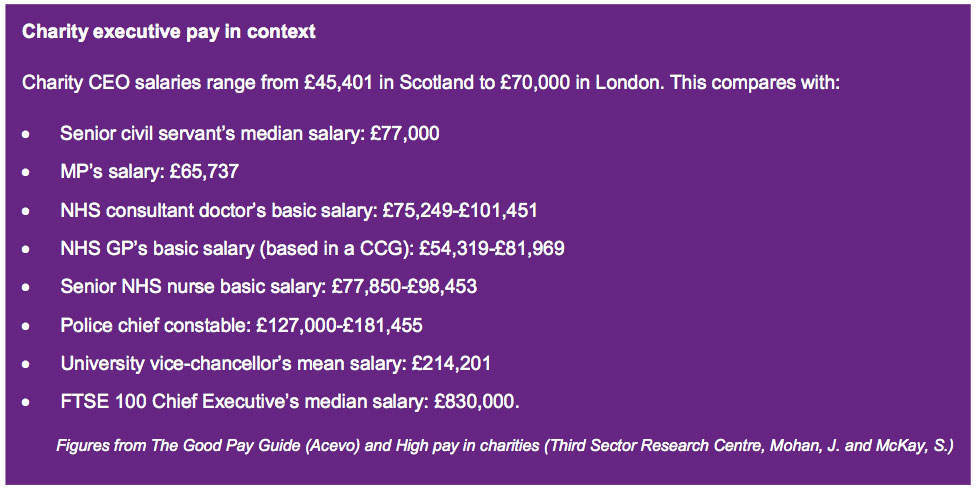

I have to take with a pinch of salt the results of a survey commissioned by philanthropy consultants NPC (who blog regularly for Spear’s). The Ipsos MORI poll showed that a thousand members of the public don’t seem to know very much about charities.
42 per cent thought that charities spend too much money on executive salaries (do they know how much the average charity CEO gets?); 36 per cent thought charities are not transparent about how they spend their money (do they read their annual reports?); 29 per cent thought charities spend too much money abroad (do they know how many charities benefit those in the UK vs the rest of the world?).

I don’t know the answer to any of those questions, but at least I can acknowledge my ignorance. If I want to know whether charities pay their CEOs too much, I’ll look at an individual charity and compare any data they have on their effectiveness and turnover with how much their CEO earns. I wouldn’t venture an opinion across the board, at least not without reading proper research.
But this survey shows an abominable public ignorance: 16 per cent think charity CEOs shouldn’t be paid! What kind of nonsense is this? Are other people who run large companies expected to do their job for nothing?
It is perhaps somewhat understandable that the public thinks along these lines. Gross levels of pay have been a huge topic in relation to bank CEOs and MPs, with outsize rewards for patent failure or mismanagement – so why shouldn’t it also be true in the third sector?
However, take a real example: Oxfam’s CEO may earn £120,000 – but he runs a charity with a turnover of nearly £370 million. How many CEOs in the private sector earn that amount? Lax remuneration boards should be warned against pay inflation, but we’re hardly seeing that here.

Recent scandals have not helped. When the Cup Trust was exposed as a tax-avoiding scheme, there was rightly outrage and calls for reform of the Charity Commission. But there are over 160,000 charities in Britain, from your local school to the Lloyd’s Register Foundation, which has a turnover of £950 million.
NPC’s response to the survey is admirably accommodating, saying ‘charities can make a big difference by explaining to their own staff, clients and supporters what they do and how they spend their funds, for example, through annual accounts, websites and social media.
Indeed, all those who volunteer or work for charities have a role to play in building the reputation of the sector and countering misperceptions.’ Trustees should speak out more (I talk about Oxford House all the time) and charities should be keener on transparency (even though the public don’t seem even to want this information when it’s there).
What we really have here is an ignorant, scandal-attentive public sounding off, just like they think foreign aid is one of the government’s top two or three items of expenditure and that crime isn’t falling (both from another Ipsos MORI poll). The title of that survey, aptly, is ‘Perceptions are not reality’. That’s what we have here.






